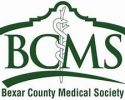In a changing world where virtually all industries are implementing AI tools into their operating practices, it begs to question the limitations of AI in healthcare.
While AI has proven to be a game-changer in industries like marketing, fashion, and e-commerce, its adoption in healthcare requires a more measured approach. Considering the limitations of AI in healthcare, the industry must be more hesitant to its implementation and understand the risks associated with it.
It’s no doubt that the healthcare industry will use AI to increase productivity and improve overall healthcare for patients, but knowing the limitations of AI beforehand will create a smoother and more strategic implementation process.
Risks and Limitations of AI in Healthcare
As with all new technology, we must be weary before fully relying on its features and benefits.
Privacy and Security
With federal HIPAA laws in place, the privacy surrounding health records is extremely strict. These laws address the disclosure of medical information to entities other than the patient and their approved relations.
Sharing private medical information with an AI tool could cause privacy concerns and risk security. Unfortunately, with new technology comes even more advanced cyber security threats.
At this point, AI does not have the government regulations required to keep medical records safe and compliant with HIPAA.
Lack of Critical Thinking
AI machines learn from billions of texts online and shared experiences, but they cannot think critically in specific situations, especially in healthcare. It is one of the most serious limitations of AI when implemented in a medical setting.
AI cannot think critically about a situation and take economic or social factors into consideration when determining a diagnosis or treatment plan for a patient.
Inaccurate Data
AI is far from perfect. Unfortunately, one of the limitations of AI is inaccurate data or incorrect information. Humans still cannot rely fully on AI to provide compliant and factual information; there will always need to be someone fact-checking the AI results.
Human Touch Required
When it comes to the medical field, where doctors diagnose and care for patients, gentle human touch and emotion are required. This is also true when medical scribes listen to doctors’ notes about a patient.
A human can identify emotions, detect sarcasm or jokes, and recognize when important information is missing or incorrect. An AI program may misinterpret or entirely ignore these unique human abilities and characteristics.
Bias and Inequality
Just as doctors go to medical school for years to train for their work in the healthcare field, AI must also be trained. While AI may take a quarter of the time to learn everything about a specific medical field, there is a chance for bias and inequality in the data and its output.
Depending on the information fed to the AI software, it could focus on one demographic when analyzing results or data and output inaccurate information.
Patient Preference
Patients must have a say in how their medical information is handled and their cases are treated. They must be able to advocate for themselves and how they wish to receive treatment and diagnosis for their conditions.
Some patients may feel uncomfortable if AI plays a part in their diagnosis or medical analysis, especially if they understand the limitations of AI.
Medical offices and hospitals find a way to implement AI into their processes while also providing options for patients who are hesitant about the technology. This could cause delays with overall internal processes and productivity.
Stay Productive with a Human Touch in Your Medical Office
While AI is a dream come true for many industries, there are undeniable limitations of AI in the healthcare industry. Genuine human touch and thought are still required, especially when it comes to medical scribes.
Relying on AI software to document medical records leaves too much room for inaccuracies and mistakes. Provider’s Choice Scribe Services offers both virtual and on-site medical scribes specifically trained to comply with HIPAA laws and accurately transcribe medical records to enhance productivity within healthcare offices.



